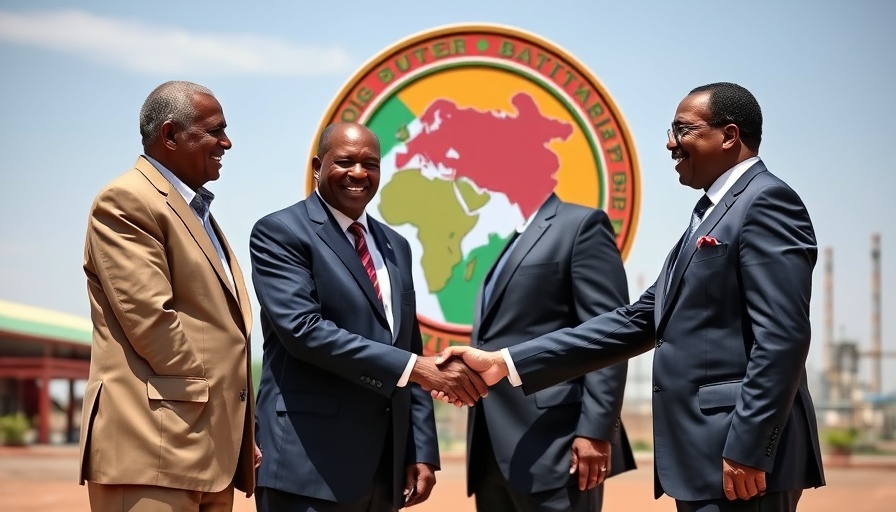
The Untapped Potential of Youth in Agriculture
As the world grapples with food security challenges and the effects of climate change, a new report from the United Nations signals a transformative opportunity: empowering unemployed youth in agriculture could boost the global economy significantly. According to the Food and Agriculture Organization (FAO), integrating young people into agricultural roles may not only alleviate unemployment but can also address pressing global issues. However, realizing this potential necessitates robust and coordinated global efforts.
In "Empowering youth in agriculture could boost global economy, FAO report says," the discussion dives into the vital role that youth can play in agriculture, prompting a deeper analysis of the strategies needed to realize this potential.
The Economic Opportunity
The FAO's analysis suggests that addressing employment gaps for youth aged 20 to 24 could lead to a staggering increase of 1.4% in the global economy, translating into a $1.5 trillion economic boon. For many developing nations, particularly in Africa, engaging youth in agriculture could spur local growth and development, fostering a more resilient economy. The entire continent stands to benefit as unemployed youth are integrated into this sector, traditionally viewed as a last resort but now recognized as a viable and vital economic engine.
Structural Challenges Facing Rural Youth
Despite the promise agriculture holds, significant barriers hinder youth engagement in this sector. The FAO highlights the trend of young people inheriting smaller land plots, exacerbated by the absence of pension systems for older farmers. As agriculture becomes increasingly competitive, the challenge lies in equipping these young individuals with the necessary skills and resources. Alarmingly, only 72% of rural youth complete lower secondary education, leading to substantial literacy and numeracy gaps. Without addressing these educational disparities, many young potential farmers may find themselves ill-prepared to navigate the intricacies of modern farming.
Strategies for Empowerment
The FAO report emphasizes three core strategies aimed at empowering youth in agriculture: bridging knowledge gaps through education, amplifying the voices of diverse youth in policy-making, and expanding economic opportunities. Collaborations between government bodies, NGOs, and the private sector will be crucial in creating innovative educational programs that not only teach agricultural skills but also entrepreneurship, sustainability practices, and leadership. Integrating young voices into policy discussions is equally vital—they must feel included and valued in decision-making processes that impact their futures.
Future Implications: A Call for Action
The future of agriculture is contingent upon transformative investments in human capital. As climate challenges escalate, young people will face pressure to adapt agricultural practices to meet changing conditions while also increasing food production. This dual challenge requires an innovative mindset and the application of new technologies—areas where young entrepreneurs can shine if equipped with the right support. Global leaders must prioritize youth in their policies, acknowledging that empowering the next generation of farmers will not only create jobs but also engender sustainable growth.
Conclusion: Why This Matters Now
Rising to the challenge of youth unemployment in agriculture is more than a moral imperative—it is an economic necessity. As we confront a rapidly changing global landscape shaped by climate change and food insecurity, the voices and talents of Africa’s youth could hold the keys to a more sustainable future. By addressing the unique barriers they face and fostering a robust support system, we can harness their potential to drive innovation and economic growth.
This report from the FAO serves as both a wake-up call and a blueprint for action. Mobilizing global resources and ensuring that youth are equipped with the skills and capital necessary to thrive will ensure the resilience and growth of the agricultural sector in the coming years. It is time for stakeholders—from governments to private enterprises—to come together and prioritize youth in agriculture for a brighter future.
 Add Row
Add Row  Add
Add 




Write A Comment